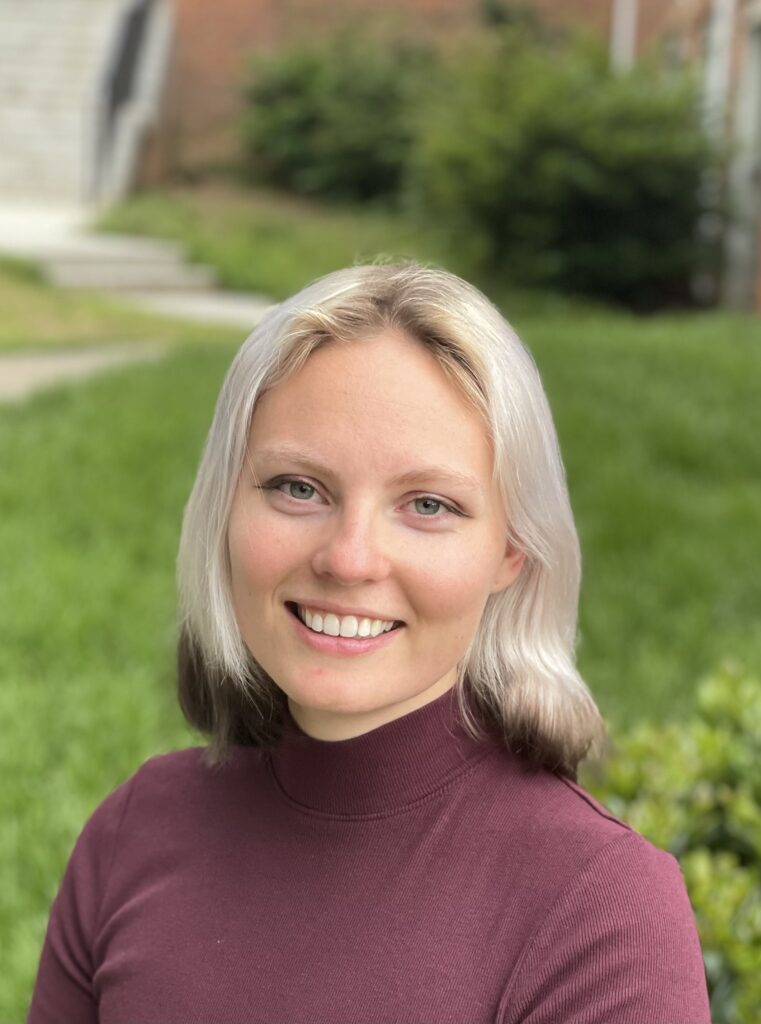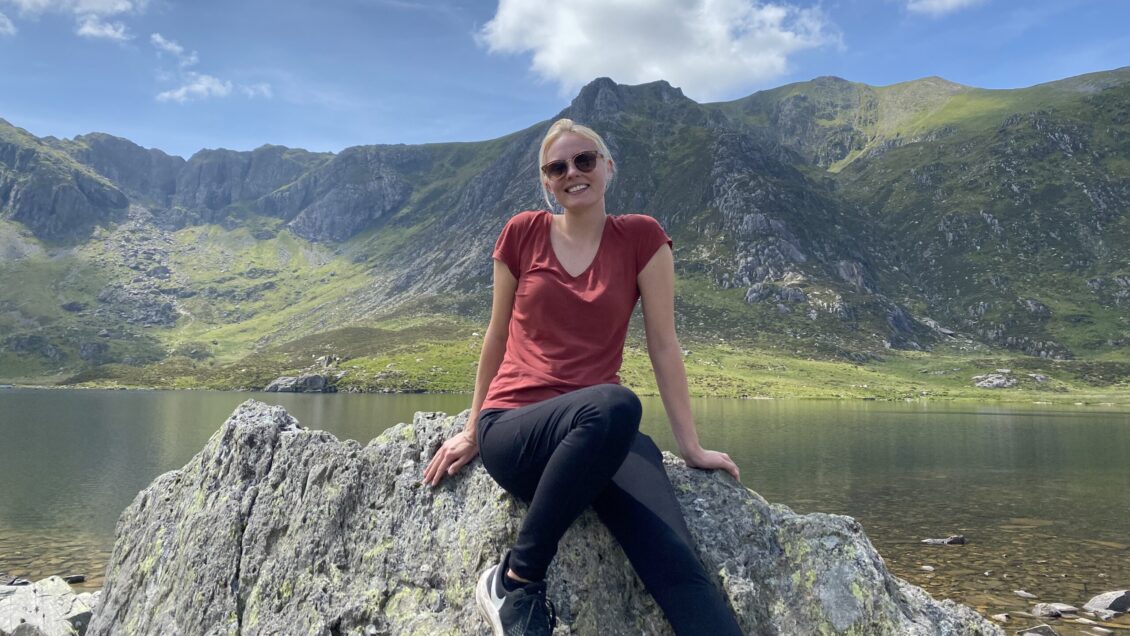Eliza Basel calls her decision to major in Packaging Science a “happy accident,” but much like her tour of the Clemson University campus when choosing her college, she found it to be a perfect fit.
“My mom knew someone whose daughter had gone through the packaging program and had been quite successful. In high school, I did well in academics but also really had an interest in art and design, and so when she heard about packaging, she recommended it as a great way to mix an engineering interest while also maintaining some design and artistic sensibilities,” Basel said.
Now a senior with graduation rapidly approaching, Basel hails from Charleston and her college choice came down to the two major in-state schools. When she visited each campus, however, the choice was clear.
“It’s absolutely beautiful here. When I came on the tour, I just knew that I really wanted the outdoorsy, beautiful campus. I’m interested in hiking and rock-climbing a lot — that’s been my main extracurricular while I’ve been here — so Clemson was an incredible place to get that,” she said.
And while the aesthetic sensibilities she mentioned played a part in getting her to Clemson, the decision wasn’t just style over substance. Basel says her experiences during her college career — not only academics, but also internships, co-op programs and international scholarships — mean that she will leave Clemson’s campus after graduation quite perfectly prepared to enter the workforce.
Basel’s first internship experience was an on-campus opportunity that focused on design and prototyping with Packaging Science lecturer Haley Appleby.

“I stayed over for the summer, and I got my hands on the prototyping machinery — we have a big flat-bed printer and then a cutting table — so I was working closely with Clemson football and the Clemson Alumni Association to create packaging for any of their events or things they sent out to donors or prospective students,” Basel said.
Packaging Science at Clemson requires a six-month Cooperative Education, or co-op, program for all students, and Basel did hers as a junior at Pregis — a leading global manufacturer of flexible packaging and protective packaging solutions — working about an hour outside of Chicago, where the company has its headquarters.
“My position there focused a lot on e-commerce and sustainability, so I was working closely with the director of global sustainability at Pregis, who was a great mentor,” Basel said.
Among the perks of Clemson’s Packaging Science major is the Sonoco Institute of Packaging Design and Graphics, which was created to capitalize on the synergies that exist between the graphic communications and packaging science departments. It is the only university program in the country with this one-of-a-kind multidisciplinary approach to packaging as a core competency.
And Basel said the facilities and machinery available to Clemson students led to her being well prepared when she began her internship.
“It was such a relief when I showed up at my internship and they were using a different brand but pretty much the exact same machinery. It gave me a lot of confidence walking in on day one and saying, ‘I can work this machine,’” she said.
Also as a junior, Basel was chosen for the Christopher J. Duckenfield Scholars Program, a five-week summer program that allows students in Clemson’s Honors College the opportunity to learn from Oxford professors in one of three study areas — environmental studies, English and English literature studies, or medieval studies — at St. Peter’s College Summer School at Magdalen College.
During her time in the program, Basel also had the opportunity to tour Pregis facilities in England and the Netherlands with the company’s director of global sustainability. And Basel didn’t only gain experience through the co-op program; the connections she made led to her having a job waiting for her.
Upon graduation this month, Basel plans to return to Pregis to begin her post-college career in earnest as a sustainability analyst working at the company’s headquarters.
Whereas previous interns with the company had landed in roles focused on design or sales, she says her experience led to her falling in love with the sustainability aspect of the industry.

“My final project was creating a presentation for the product leaders to help them understand how their products compare to one another in their sustainability, so that when they go out and sell on sustainability, they can talk confidently about the sustainability benefits of what they’re bringing to the table. And I must’ve made a good impression on the chief sustainability officer because the position that I’ll be entering is newly created, and I’ll basically be assisting him in making all the sustainability goals come to life,” Basel said.
That means working in areas such as reducing carbon emissions, waste and reshipments, all of which fit neatly — just like well-designed packaging — into her worldview, which features the same appreciation for the natural world and environment around her that led her to Clemson in the first place.
“I really want to go home every day knowing that what I did is making a difference. I think that sustainability being so close to my heart is going to make the job that much more rewarding,” Basel said.
Of course, during her four years at Clemson studying the science of packaging, Basel said it also opened her eyes to the vast impact it has on so many aspects of society.
“It felt like a veil was lifted from my eyes as I realized that just about everything gets packaged — everything that gets from point A to point B — someone had to think through how to get it there in one piece with a great customer experience. So, knowing that I could go into almost any sector and have something to contribute was a great sell for the packaging program,” she said.
Even with significant internship experience, Basel said in retrospect she would pursue even more of such opportunities.
“I wish I had done an internship every summer. It was such a great way to meet people and understand how the industry is set up. I remember in lectures they would try to explain the supply chain or try to explain some of the machinery, but you really have to just get out there and get your hands dirty.”
Get in touch and we will connect you with the author or another expert.
Or email us at news@clemson.edu

